Polarisation, de-dollarisation, and the emerging world order
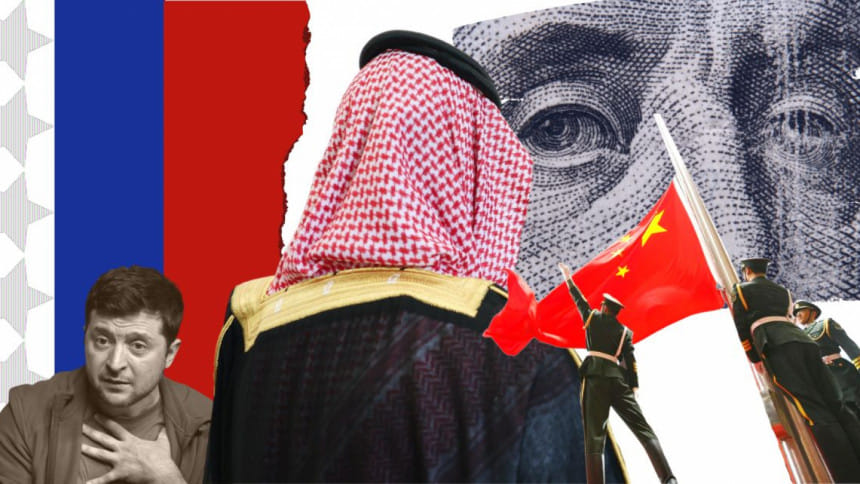
The war in Ukraine has ushered in a quasi-Cold War symbolised by an increased militarisation of the nation-states. The Stockholm International Peace Research Institute (SIPRI) notes a rise in global military spending surpassing $2 trillion. All of this is good business for the war industry. We are observing a historic resource transfer from butter to gun.
It appears that the superpower proxy war is not ending soon. Russia is continuing its advances. The West is not backing down and is preparing for long-term engagement. Poland would serve as the principal docking ground. President Zelensky envisages that Ukraine is poised to become a "Big Israel" in Europe. Draft or conscription is taking place in both Russia and Ukraine. The media has been restricted in both countries.
Events are moving fast, very similar to what was observed before the two World Wars. This is indicated by the meetings of the heads of states, travels of the foreign ministers, joint military exercises, discussions at the UN, democracy summits, and some protests against war. Polarisation, strategic realignment, diplomacy, and military alliances are reshaping the global power structure. A new world order is emerging.
An understanding of the polarisation process should deliberate on the following issues: historical background that led to the current situation; assumptions, hypotheses, and beliefs about the opponents; assessment of the situation based on the strengths and weaknesses of opponents; speculation about the possible actions of opponents; and expected outcomes that may end the conflict.
Polarisation and strategic realignment
The United States has been propelling for a unipolar world by weakening Russia and containing China in a long-term engagement. The declassified military papers, government documents, academic writings, and popular media reporting for the past 30-plus years indicate that China is the principal strategic competitor of the US. Individually, China and Russia are relatively weak counterforces to the military might of the US or Nato. Once Russia is tackled, Nato would have a better grip over the rising power.
If the West does not change its course of action, a military alliance between China and Russia can ensue. It is part of the dialectic. The weight of the alliance would drastically shift the balance of power; politically, economically, and militarily. Many countries would lean towards the duo. Assuming no nuclear war, this strategic gesture shall make the war less sustainable in the long run, increasing the chance of negotiation.
On the economic front, an elitist G7 has been countered by a neo-elitist Brics for over 10 years. Discussion to expand Brics membership to Algeria, Argentina, Egypt, Indonesia, Kazakhstan, Pakistan, Saudi Arabia, and Turkey can change the power dynamics. This type of elitist economic coalition has its limitations. They are not trade blocs or military alliances. The coalition primarily serves the interests of the member states, whereas the rest of the world gets corollary benefits.
Middle Eastern security-insecurity
The Middle East has lost three million people since World War II. Currently, it is home to half of the world's refugees. The economic power of the oil-rich countries has been curtailed by the war. Politically, some Middle Eastern countries are barely functioning as nation-states (such as Ethiopia, Iraq, Lebanon, Libya, Somalia, Sudan, Syria, and Yemen).
To overcome this, they have turned to diplomacy. Iran and Saudi Arabia are establishing diplomatic relations, with moral support from China. War in Yemen is likely to end. Saudi Arabia and other Arab nations are mending their fences with Syria, and the country is poised to rejoin the Arab League. Egypt and Turkiye are re-establishing full diplomatic relations. Bahrain and Qatar are following suit. To forge unity and strength, they could return to their faith, which gave them spirit, strength, knowledge, and advancement.
How far regional leaders will be able to uphold peace initiatives against the "divisive forces" will determine their role in the emerging world order. Opponents of peace are already alert.
These countries could consider the establishment of a trade/economic bloc under the Organization of Islamic Cooperation (OIC). The political, economic, and social power of 57 nations and 1.8 billion people can be a significant force for peace-building. An initial signing agreement could take place between a few members. Over time, other nations could join in. The European Union started with only six countries, based on the Treaty of Rome (in 1957). Now, it has 27 members.
A strong peace pole in the Middle East should encourage other regions to resolve their disputes through diplomacy. If successful, this would be a good example of south-south cooperation and persuade superpowers to consider peace through negotiation.
Israel is a critical component in terms of peace in the Middle East. Militarily, it is a strong country. Its security needs are different from its neighbours. For the past 75 years, it has received umbrella protection from the West (or, the US). No change is expected. Israel will remain with the West (or, the US).
Security council reform
About 10.5 million lives, 100 million displaced people, and 32.5 million refugees since 1945 should indicate the inadequacy of the UN system. Reform is a popular demand. Specifically, the veto power of the UN Security Council (UNSC) has been one of the most contentious topics. Opinions to expand its membership, curtail its power, establish a points system, or eliminate it altogether have been expressed. No serious change has taken place. It is still a superpower club.
The UNSC should revise its role and embrace the racial, ethnic, linguistic, and religious representation of the world population as best as it can. For example, four of the five superpowers are predominantly Caucasian (white), one is Asian, and none is African. All four majority-Caucasian superpowers are also predominantly Christian (mostly Protestant), and China's population is predominantly atheist (with some Buddhists). Hinduism and Islam, two other major religions, are not represented.
The institution also does not represent the three major ethno-linguistic population groups of the world: Arabic, Hindi, and Spanish). They shall find a way to accommodate the African Union and the Vatican (to represent the Catholics) at the UNSC.
The de-dollarisation issue
So far, the US has retained its economic leadership because of the dollar. Countries like China, Germany, Japan, Saudi Arabia, and many others finance US' government spending, military ventures, and debt. During the past 40 years, the US government has constantly printed money to fulfil the global need for liquidity and simultaneously sustain its domestic spending. The US dollar is the core of a "monetary and financial culture" that governs the world.
Replacement of the dollar in the short run is highly unlikely because of many reasons. First, i is a reserve currency held by many central banks. It is also a transaction currency in international trade and an investment currency in international deposits and loans. The US dollar acts as an invoice currency in business contracts and is also an intervention currency for determining exchange rates.
The dollar does not have a gold backing. Yet, it is the most trusted currency in the world. This trust arises from the US leadership in our capitalist world, and from the size of the US economy, its relative share in global trade and investment, its stable political system, and its cultural influence. Additionally, the petrodollar provides the demand push, and the savings of emerging and developed countries are funnelled back to US capital markets. The system works well in favour of the dollar.
But discussions are taking place to find an alternative to the dollar. The Chinese yuan, Brics currency, crypto currency, or digital currencies (even the US government is considering this option) are possible alternatives. We observe that Brics and many countries have taken steps to move away from the dollar. Their initiatives remain untested as the amount is very small. Plus, most previous attempts to de-dollarise have failed.
The US is likely to exercise its diplomacy and coercive power to keep the dollar afloat. The monopoly or the economics of the dollar will not change unless the world is able to embrace a newer political structure.
A concluding note
Hegemony and the control of global resources are cardinal to current superpower conflicts. The West is determined to retain its global leadership, Russia intends to remain a Eurasian power and defuse its existential threat, and China is poised to become the global economic centre.
An emerging world order should be able to accommodate the conflicting goals of the superpowers, encourage representativeness of smaller nations, establish national and global security, advocate multipolar governance, and foster equitable development. If done right, polarisation can channel our differences favourably.
Personally, I am convinced that no one shall be able to win this "war game," be it in the short or long run. The war rhetoric in the media is fostering a "culture of hate." It is having a detrimental effect on society. Our children will grow up more violent. It is time to put a cap on this before it is too late.
Let us stop the war and return to diplomacy. It is our best option.
Dr Abu NM Waheeduzzaman is a professor of Marketing and International Business at Texas A&M University-Corpus Christi.
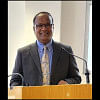
 For all latest news, follow The Daily Star's Google News channel.
For all latest news, follow The Daily Star's Google News channel. 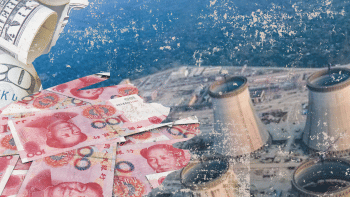
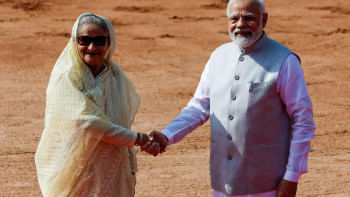









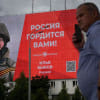



Comments